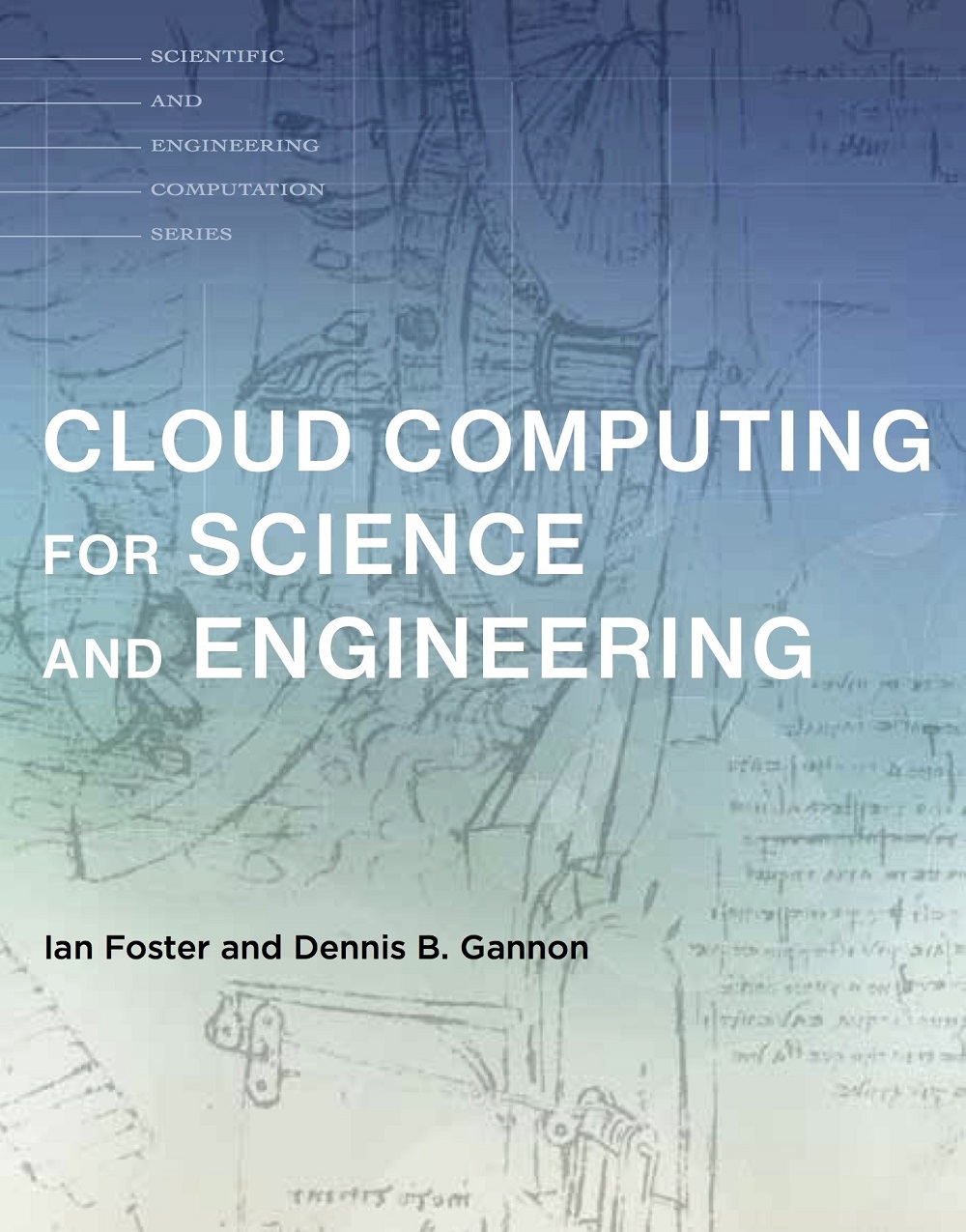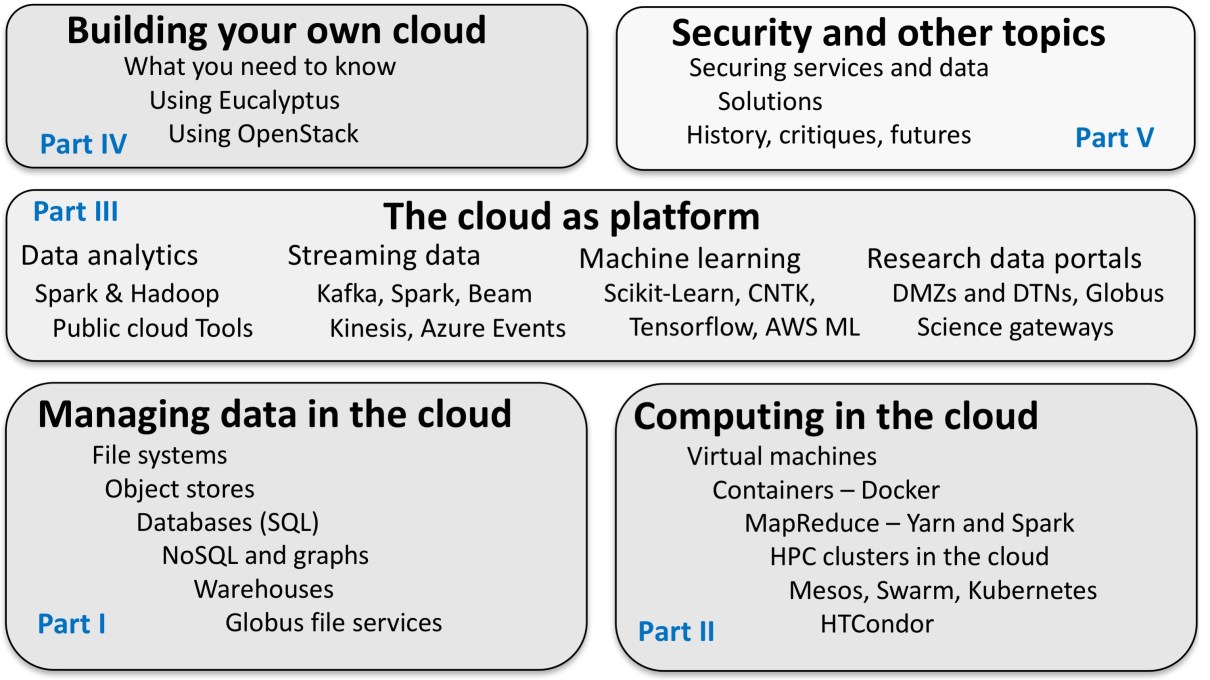Cloud computing exploded on the scene in the last decade (Amazon Web Services was founded in 2006) shifting the paradigm for how computing is delivered toward a ubiquitous, on-demand model. Cloud’s legacy can be traced to the pioneering work of Ian Foster who along with colleagues Carl Kesselman and Steve Tuecke developed distributed computing approaches that enabled a new era in innovation for data-intensive sciences, such as high-energy physics, environmental science, and biomedicine. The “grid” techniques invented by these collaborators set the stage for IT’s cloudy transformation.
As one of the fathers of grid computing, Foster has brought his knowledge and experience to bear in a new book that addresses the potential for cloud (public and private) to accelerate scientific discovery. Written with co-author Dennis Gannon (Emeritus Professor of Computer Science at Indiana University Bloomington) “Cloud Computing for Science and Engineering” serves as “a guide to cloud computing for students, scientists, and engineers, with advice and many hands-on examples.”
Foster, senior scientist at Argonne National Laboratory and the University of Chicago, provides additional information about the book in a blog post:
Clouds operated by Amazon, Microsoft, Google, and others provide convenient on-demand access to storage and computing. They also provide powerful services for organizing data, processing data streams, machine learning, and many other tasks. Every scientist and engineer needs to understand what these services can and cannot do, and what the emergence of cloud means for their work. This book addresses that need, describing cloud computing and how you may apply it to advantage in science and engineering. It is highly practical, with many hands-on examples of how to use cloud to address specific problems that arise in technical computing. It provides actionable advice on how and when to apply cloud computing in your work.
The book covers cloud services for managing data, and how to program these services; computing in the cloud, from deploying single virtual machines or containers to supporting basic interactive science experiments to gathering clusters of machines to do data analytics; using the cloud as a platform for automating analysis procedures, machine learning, and analyzing streaming data; building your own cloud with open source software; and cloud security. It covers major services provided by the Amazon, Google, and Microsoft clouds and the research data management capabilities of the Globus cloud service. Two chapters by guest authors cover the Eucalyptus (Rich Wolski) and OpenStack (Stig Telfer) private cloud technologies. See the figure below and the Table of Contents for more information on what the book covers.

The book was positively reviewed by Tony Hey, Chief Data Scientist, Science and Technology Facilities, Rutherford Appleton Lab. He writes, “Cloud computing has changed the corporate world dramatically in a few short years and is now about to play a major role in scientific and engineering applications. This very timely book by Foster and Gannon is both a comprehensive overview and a practical guide to the services offered by the three major public cloud providers, Amazon, Google, and Microsoft. It will be an invaluable resource for scientists and engineers in both industry and academia.”




























































